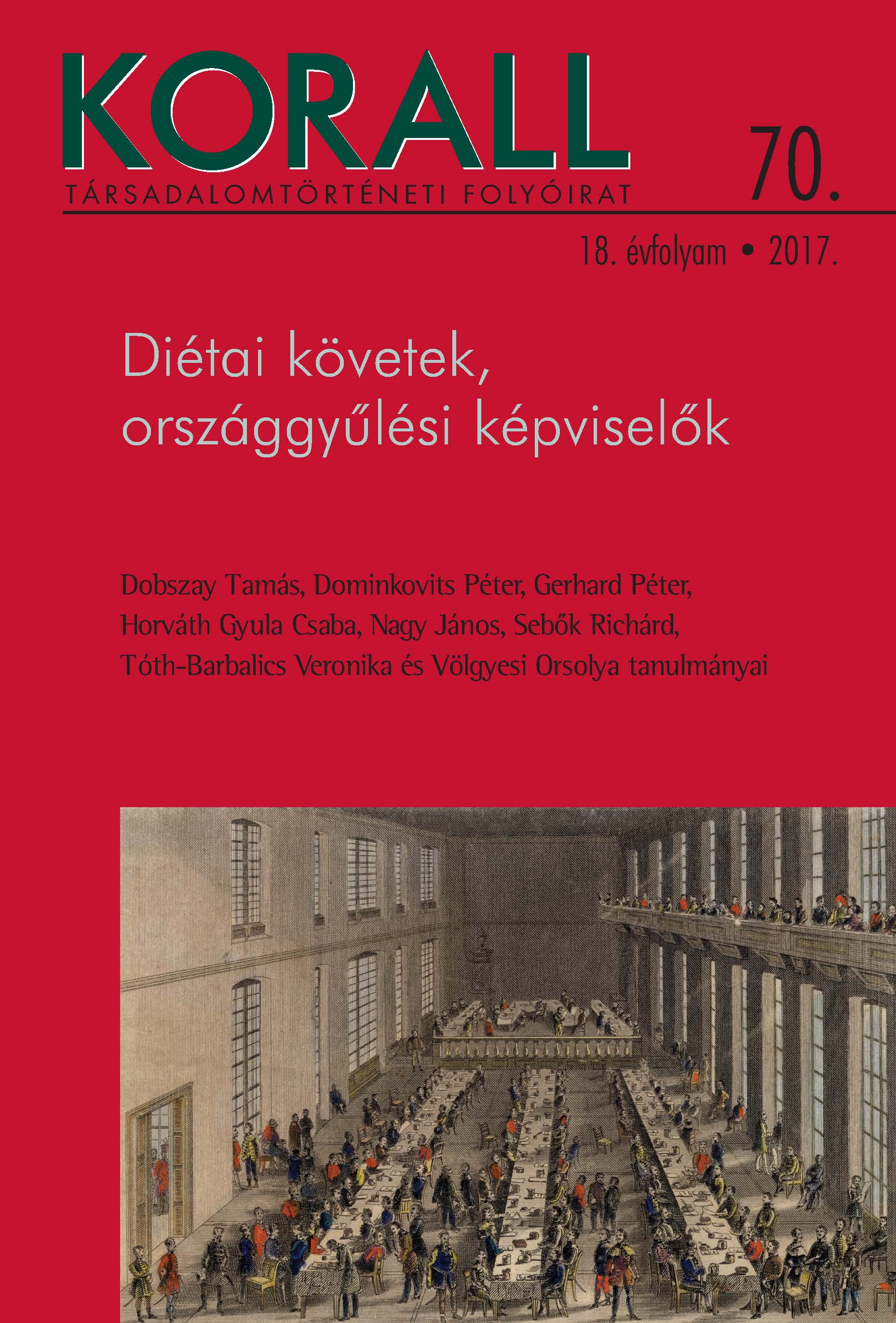Széchenyi István országgyűlési részvétele. Diétai itinerárium
István Széchenyi’s Participation in the National Assembly. Diet Itinerary
Author(s): Tamás DobszaySubject(s): Political history, 19th Century
Published by: KORALL Társadalomtörténeti Egyesület
Keywords: history;Hungary;Széchenyi;
Summary/Abstract: Széchenyi’s wealth, aristocratic standing and connections with the court, as far-reaching as England, provided him with many avenues to implement his modernisation projects. As a hereditary peer and a member of the House of Lords in the Hungarian Assembly, he chose to use his opportunities and, unlike many of his fellow representatives, diligently attended the sessions unless he was otherwise engaged. The study examines the personal diary of the count, especially the references to his participation in the sessions term by term between 1825 and 1848, as well as the length of his stays at the diet and the reasons for occasional non-attendance. Széchenyi was absent for longer periods of time only at the 1830 and the 1832–36 diets, when he was called away from the assembly to manage important projects of public interest, including transportation development (steamboat transport, flood-relief works, bridge construction), societal and civil development and cultural projects. When he was in attendance at the diet, however, he was very eager to enter political disputes and policy debates and put forward a number of initiatives and proposals which advanced the modernisation of the diet. His political status was difficult to define within the framework of the traditional dualist separation of power and he strove to go beyond the restrictions of the long-standing binary of an absolutistic monarch versus estates in opposition.Based on his assessment of the French Revolution and following his own elitist liberalism he rejected the idea of mass participation. At the same time, he also realised the new directions of progress and was willing to find his platform according to the criteria of modern parliamentary politics.
Journal: Korall - Társadalomtörténeti folyóirat
- Issue Year: 2017
- Issue No: 70
- Page Range: 109-130
- Page Count: 22
- Language: Hungarian

